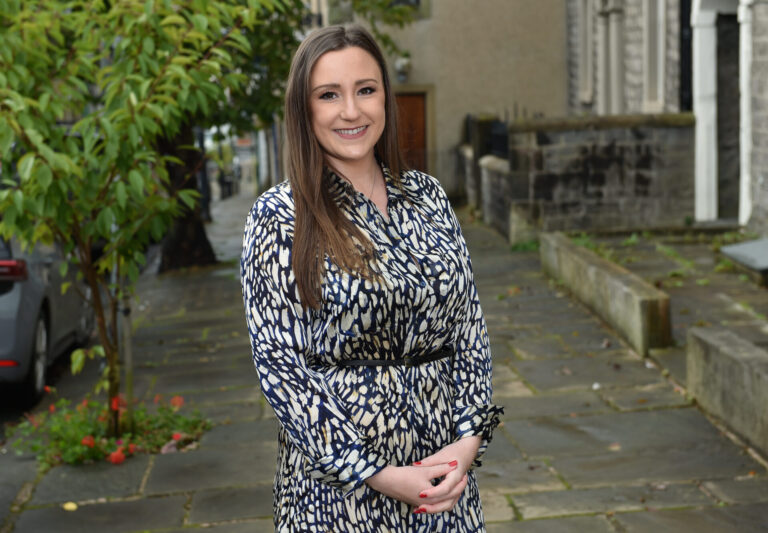
Victoria Taylor, senior associate solicitor in our contentious probate & trusts team, looks at the recent case of Rahman v Hassan [2024] EWHC 1290 (Ch), a case which has prompted a review of the development of the doctrine ‘donatio mortis causa’, the Latin phrase meaning ‘gift in contemplation of death’.
Donatio mortis causa in its simplest form is a gift made by a living person in contemplation of their impending death, subject to the condition that they die. It is most commonly used when a person hasn’t made a will but wishes to make a gift outside the usual rules of intestacy or wishes to make a gift outside the provisions of their existing will.
A donatio mortis causa requires: (1) the gift to have been made in contemplation of impending death; (2) the gift must be made on the condition that it shall only take effect absolutely when the donor dies (and it is therefore revocable during lifetime); and (3) there must be delivery of the gift, or something representing the gift, which is accepted by the donee.
Usually, the most difficult requirement to establish when claiming donatio mortis causa is delivery of the gift and how that takes place in a modern world where so many of our assets are controlled online. For example, a claimant may possess the donor’s bank account card, but how does he prove that the donor intended to part with dominion over it and not just physical possession.
Facts of Rahman v Hassan
The claimant, Mr Masudur Rahman, purported to be a relative of the deceased, the late Mr Al Mahmood and his wife, Mrs Al Mahmood. A family tree produced by the claimant’s father showed that the claimant was the deceased’s second cousin once removed.
The claimant came to London from Bangladesh in 2011 and over several years became very close with the deceased and his wife and as they got older, he supported them with their personal care.
Eventually, the Claimant moved in with the deceased and his wife at their home in London. Mrs Al Mahmood died on 6 October 2020 leaving the entirety of her estate to her husband who in turn died a little over 2 weeks later, leaving his entire estate to the four defendants who were the blood relatives of Mrs Al Mahmood.
The value of the estate for probate was stated as £1.4m however, interim estate accounts prepared on behalf of the first and second defendants showed an estate value of £3.15m.
The donatio mortis causa
The claimant alleged that on 15 and again on 20 October 2020, the deceased carried out acts amounting to donatio mortis causa in favor of the claimant of all his UK based assets.
On 15 October 2020, Jonathan Amponsah (will writer) met with the deceased whereupon the deceased instructed Mr Amponsah to draw up a new will appointing the claimant as sole executor and beneficiary of his entire estate.
Following this meeting, the deceased took the claimant through various papers relating to his estate including bank statements, documents relating to his share portfolio and land registry records relating to his London home and two flats which he owned in Sutton.
On 20 October 2020, the deceased took the claimant through these documents for a second time, but this time provided the claimant with the relevant login and password information to access the assets plus his bank cards, cheque books, the land registry certificate for his London home together with the long leases for his two flats in Sutton.
At the end of this meeting, the deceased told the claimant that he now knew everything relating to his UK estate and that everything was for him. By 22 October 2022, Mr Amponsah had not returned with a draft will for the deceased to sign (mainly due to COVID-19 related delays) and with his impending death in mind (the deceased died a matter of hours later) sent Mr Amponsah the following text message:
“Jonathan, I am al-Mahmood. I agreed that Masudue Rahman will be the absolute own of all my assets and the executor of my new and last will. This is my final word. I revoked all my previous will done by me and my wife. It’s a difficult time for me. Please help Masud.”
The deceased sent a similar text message at the same time to a friend.
The judgment
His Honor Judge Paul Matthews focused his deliberations on whether the deceased had exercised free will when instructing Mr Amponsah to create a new will and when sending the above referred text messages and if so, whether the deceased had affected delivery of a donatio mortis causa.
The Court found that the deceased had successfully gifted the monies in his bank accounts, the London home and the two Sutton flats (excluding furniture and contents) to the Claimant by the 20 October 2020 meeting.
In the case of the bank accounts, a donatio mortis causa had been affected by the act of handing over the login details, passwords and other security devices for those accounts and in the case of the properties, by handing over various keys and the land registry certificate and long leases.
The Judge noted: “Indeed, the question may be asked, what more could he [the deceased] have done in the circumstances in which he found himself? He was ill, believed he was dying…so he resorted to a gift to take effect on death.”
Comment
A novel point that this case has dealt with (which had been left open in the recent case of Davy v Bailey [2021] EWCH 445 (Ch)) is whether it is possible to create a donatio mortis causa of registered land, notwithstanding the introduction of the Land Registration Act 2002.
Since the introduction of the Land Registration Act 2002, neither a land registry certificate nor official copy of the register needs to be produced as the title is the register.
The Judge found that delivery of the land registry certificate and long leases was to be properly regarded as evidence of title. The Judge went on to comment that even the handing over of an office copy entry would have sufficed, as long as the relevant intent was present.
Also of note, the Judge found that in a ‘computer age’, the handing over of the deceased’s online login information and passwords was evidence of ownership and that by delivering these to the claimant, the deceased intended the claimant to have the contents of those accounts.
The claimant was not awarded the furniture and contents of the properties as the Judge found that there was no evidence that the deceased attempted to deliver those chattels to the claimant. Therefore, where delivery of chattels is concerned, formal delivery of the chattel is required and the fact that the claimant, his wife and child occupied the London home was not enough.
The Court has recently granted the defendants permission to appeal. The primary grounds for appeal include whether the land certificate and leases constitute evidence of title.
It is well established that unregistered land can be gifted by handing over the deeds to it however, whether or not registered land can be gifted by handing over land registry documents should be finally decided at the appeal.
The outcome will set an important precedent in an increasingly digital society and should be known by next summer.
Harrison Drury has a dedicated team who can advise and represent you on similar matters. To make an appointment, please contact us on 01772 258 321.

